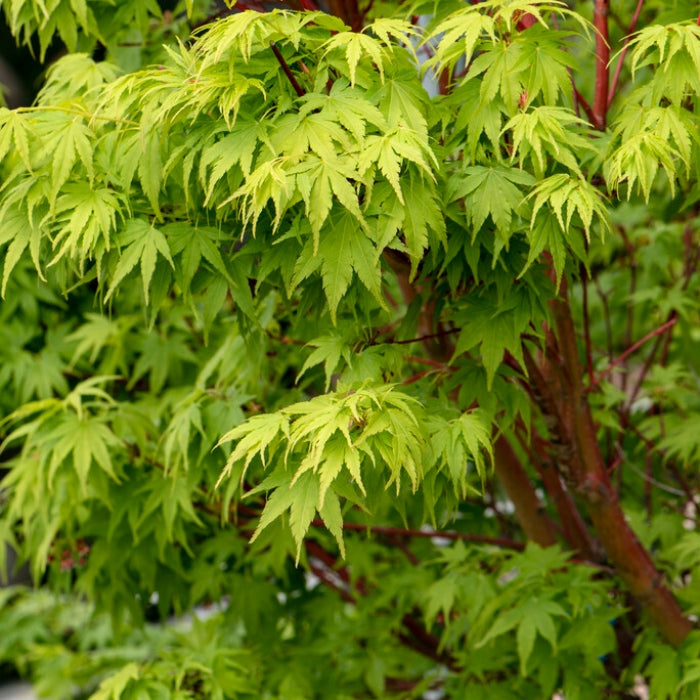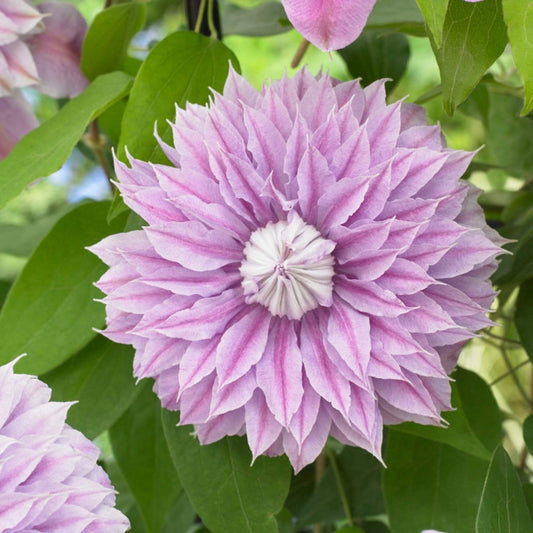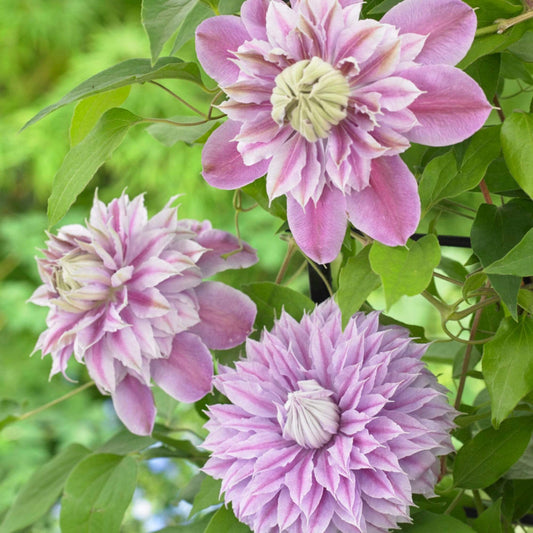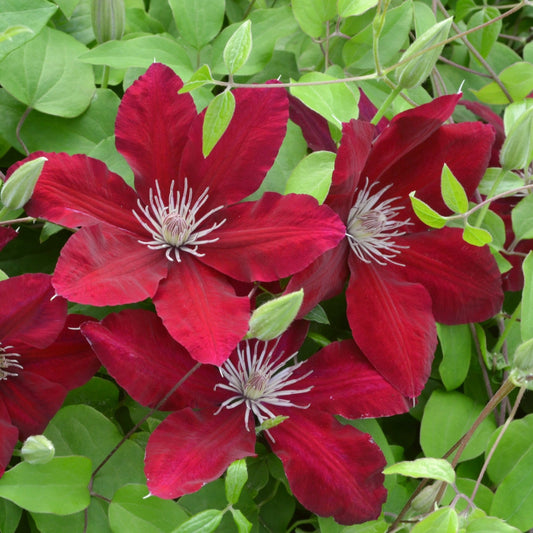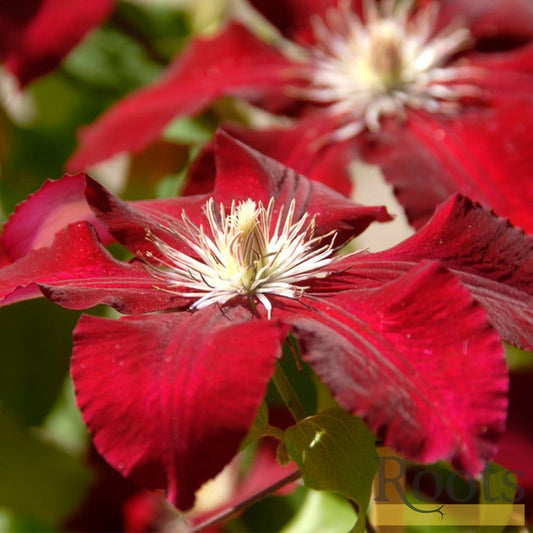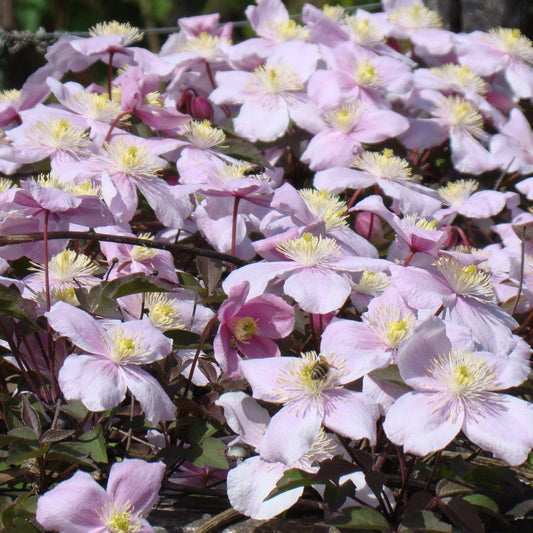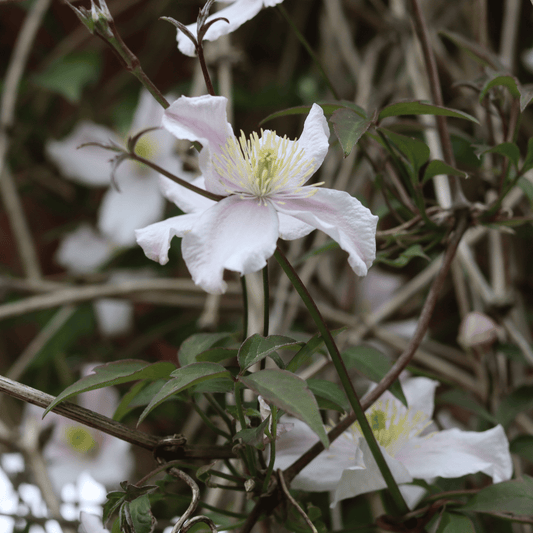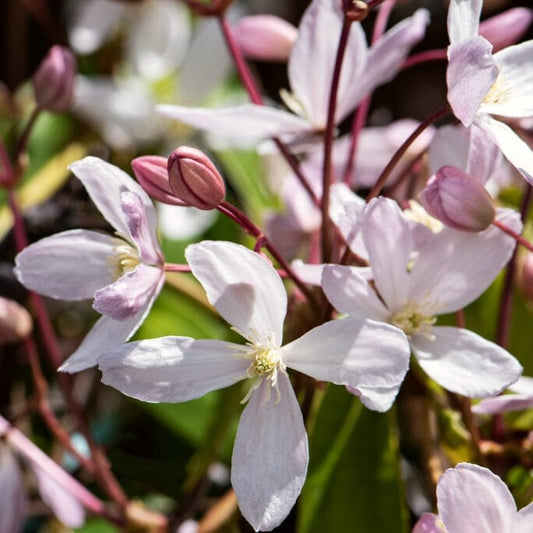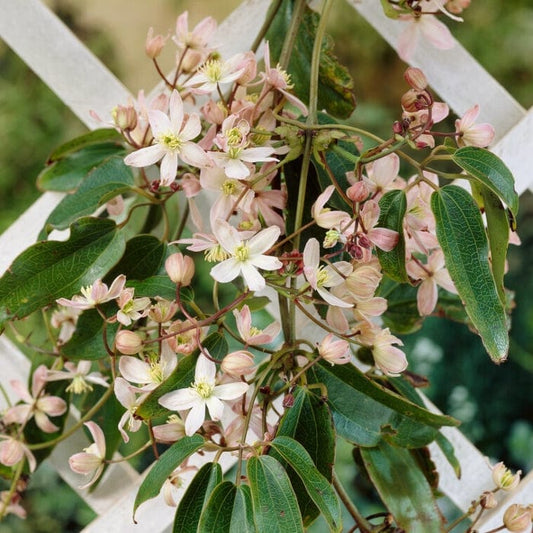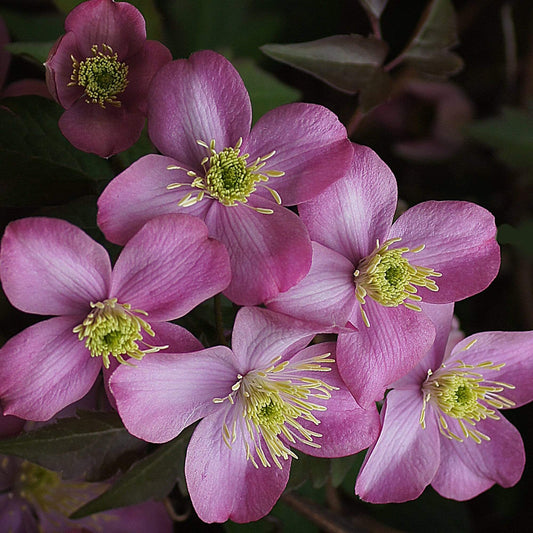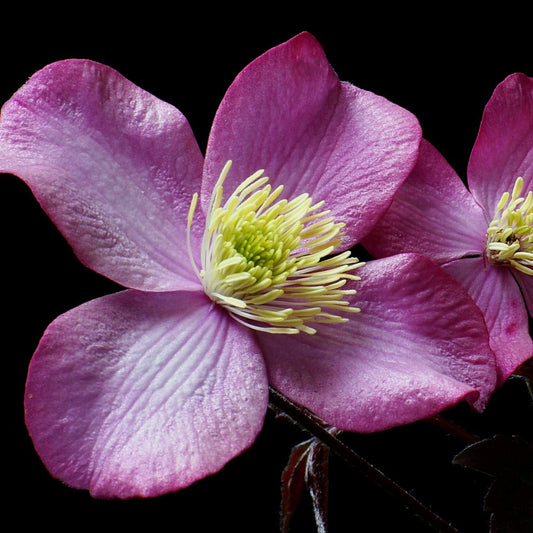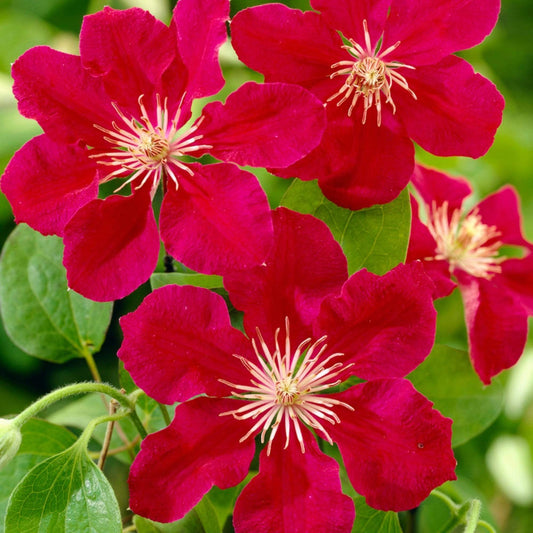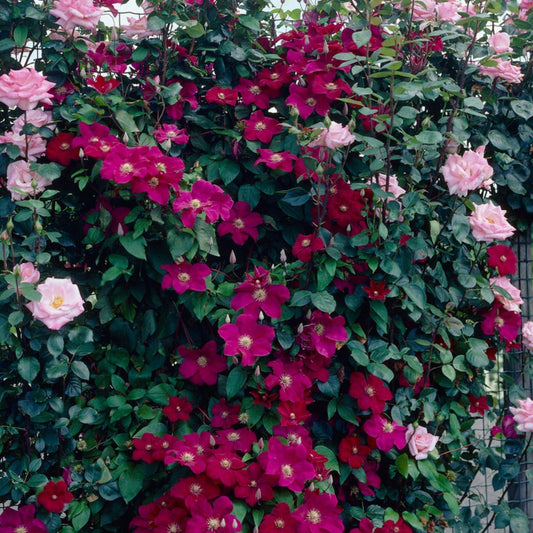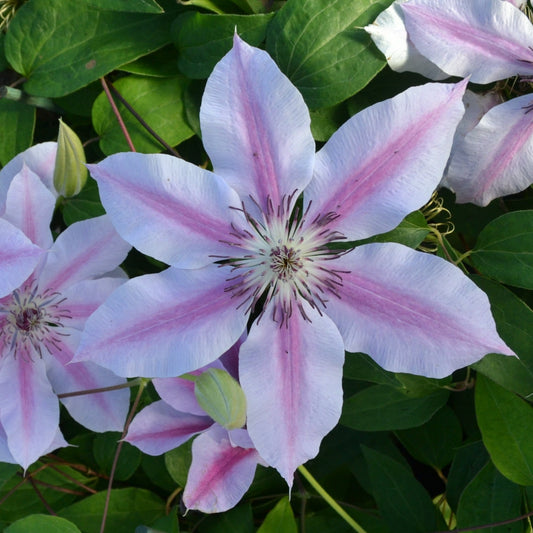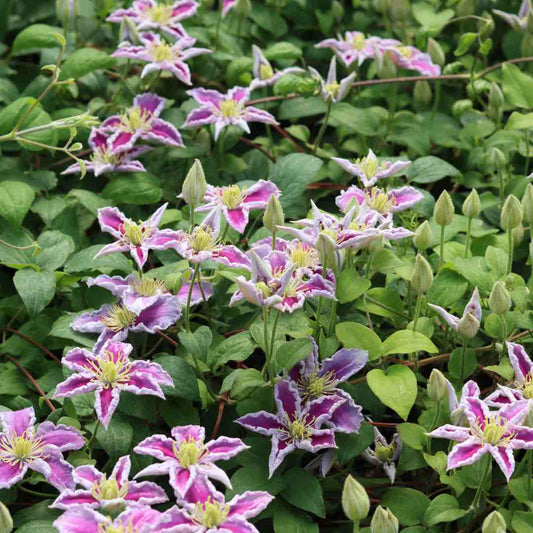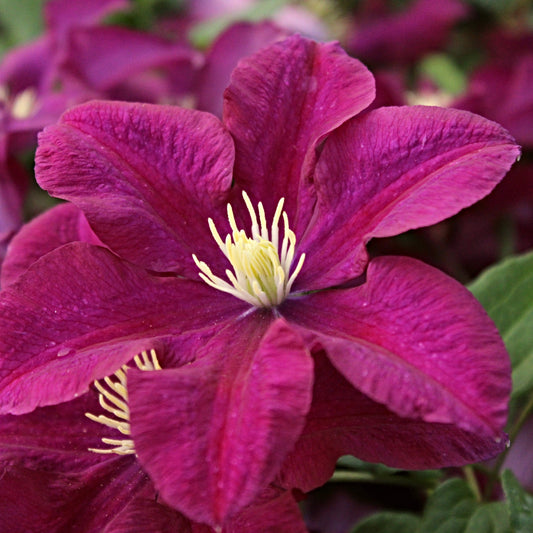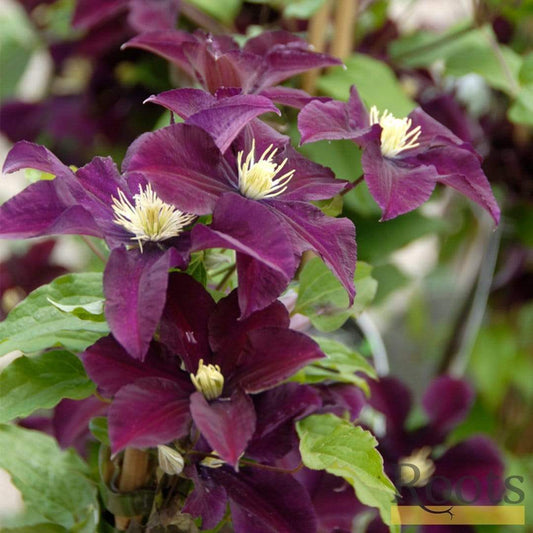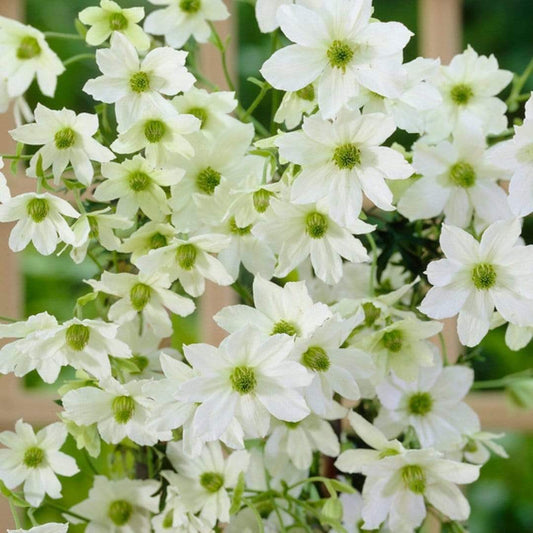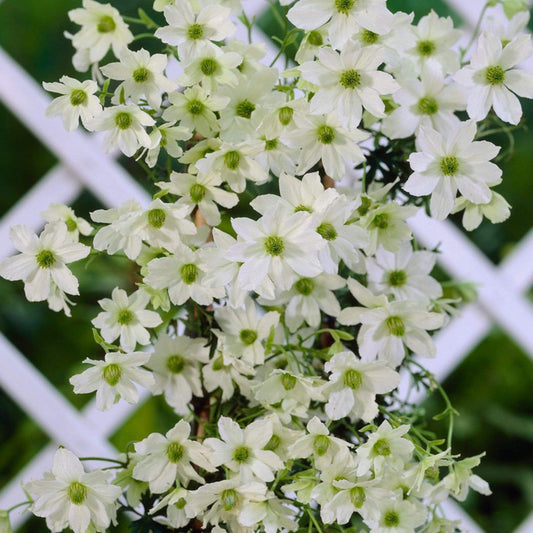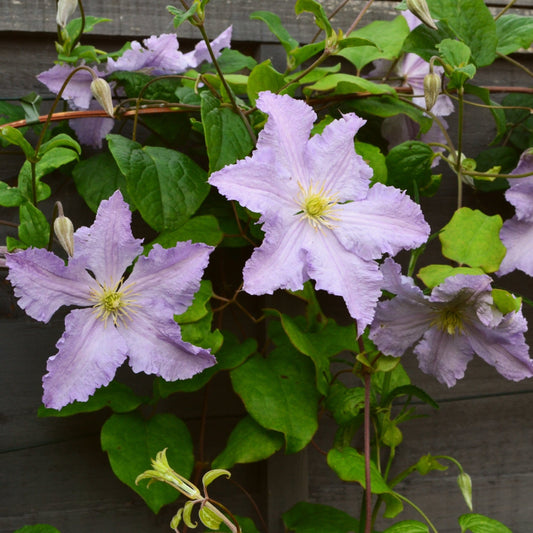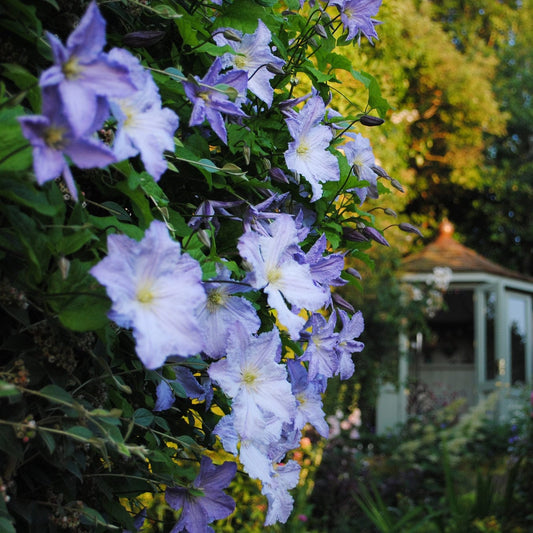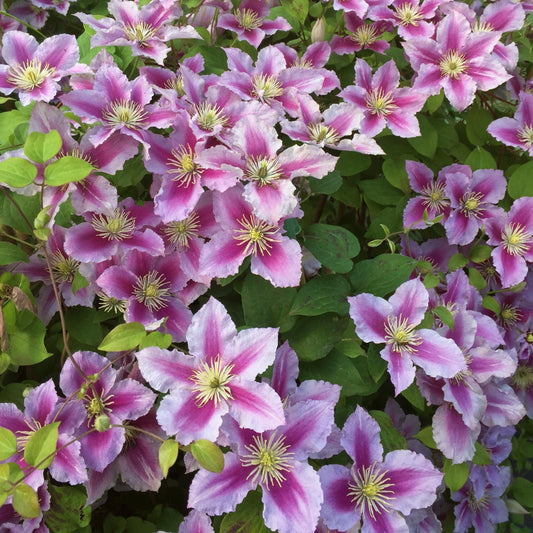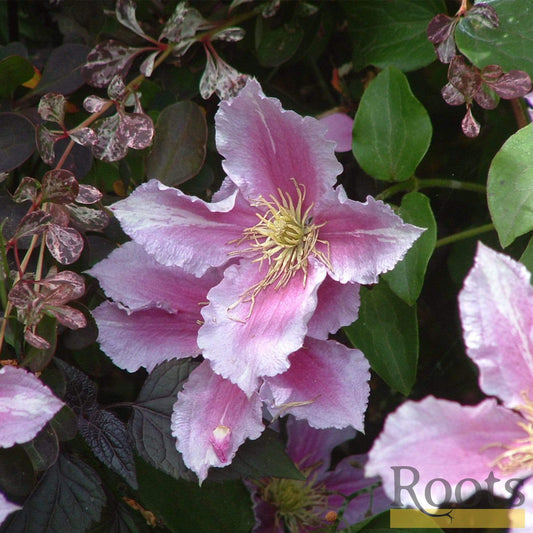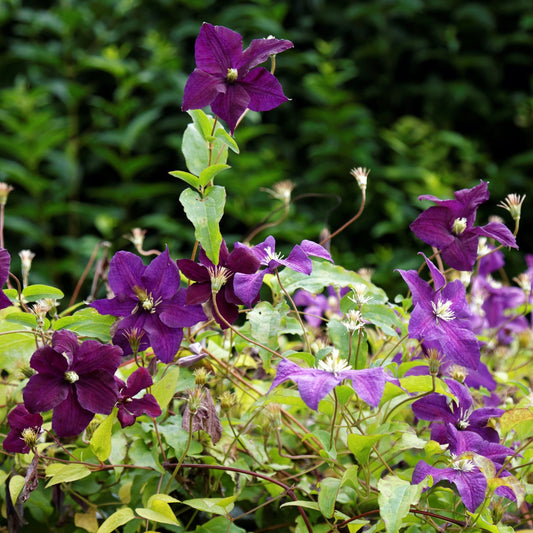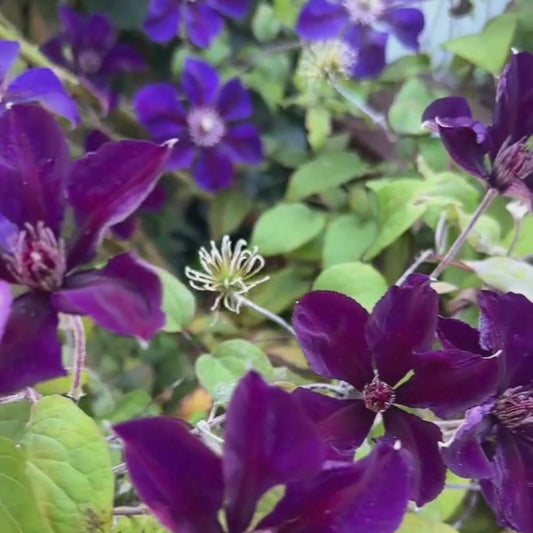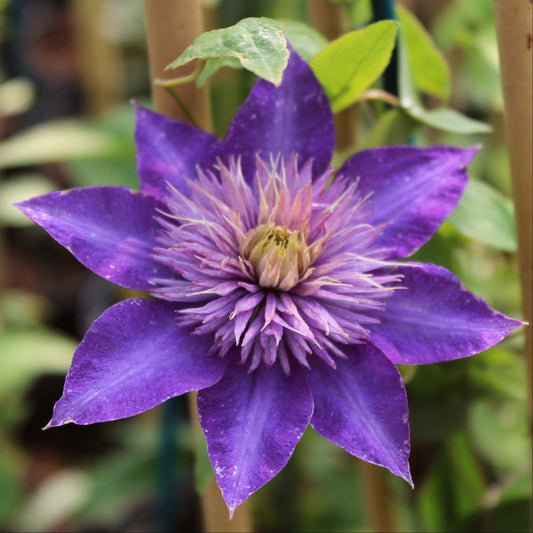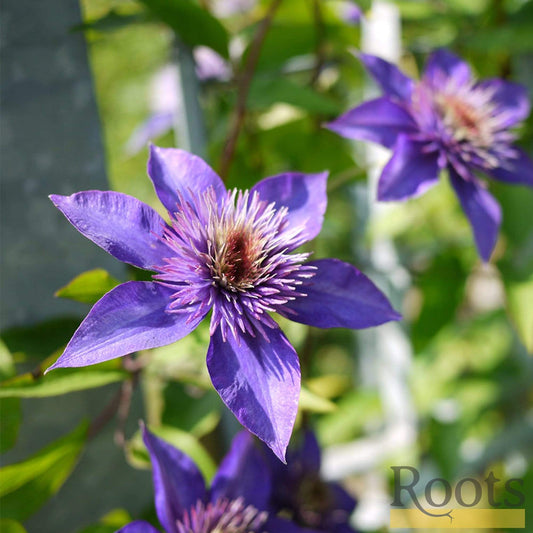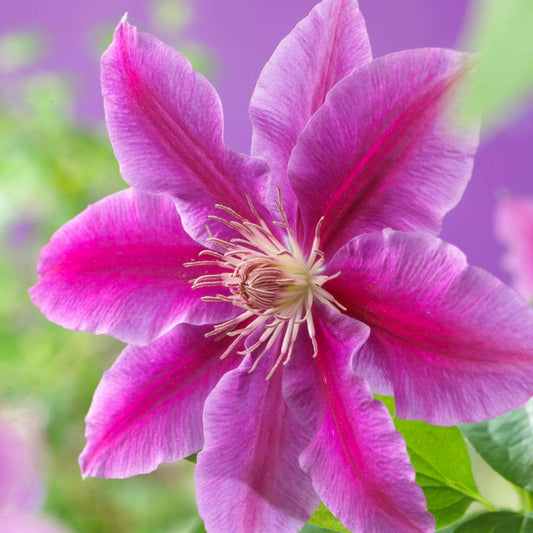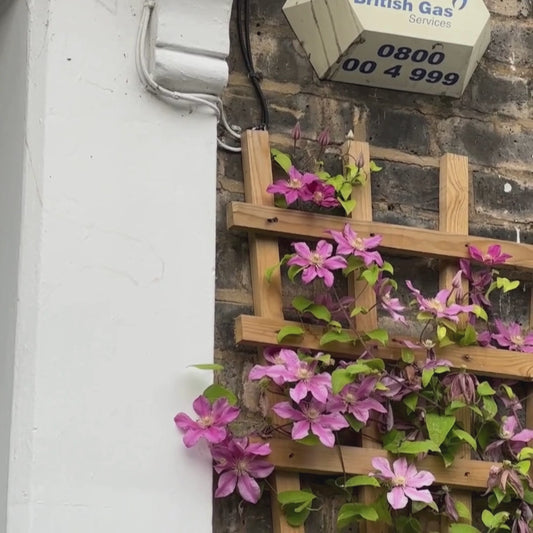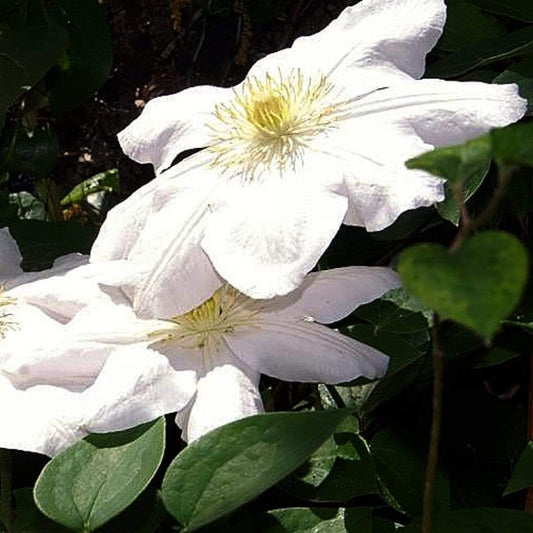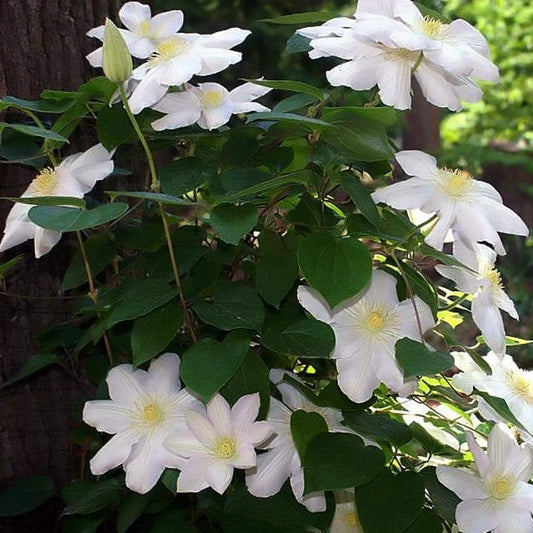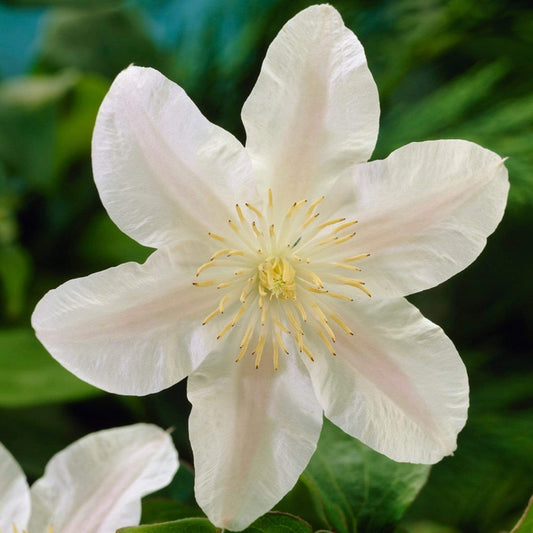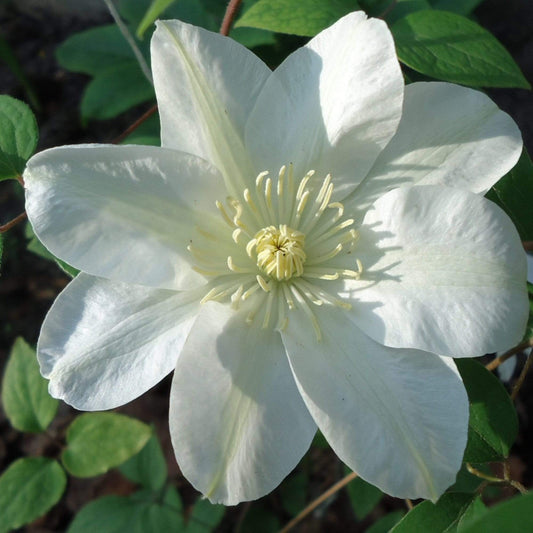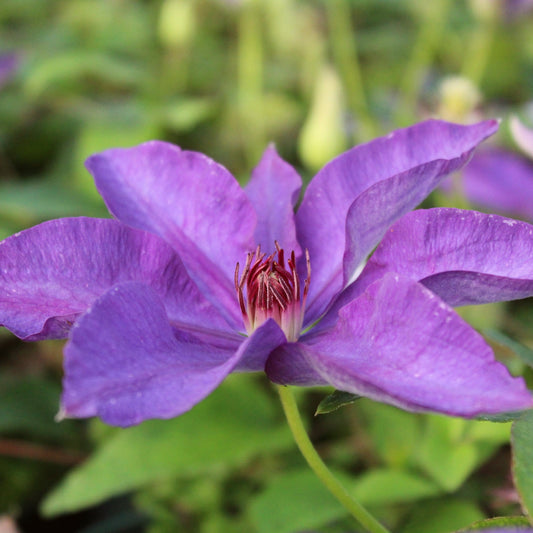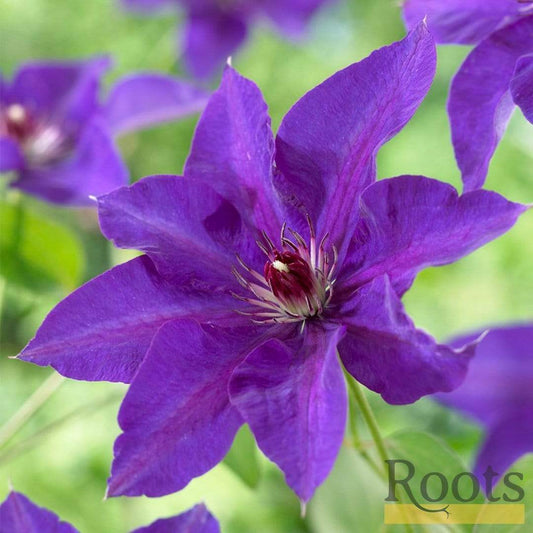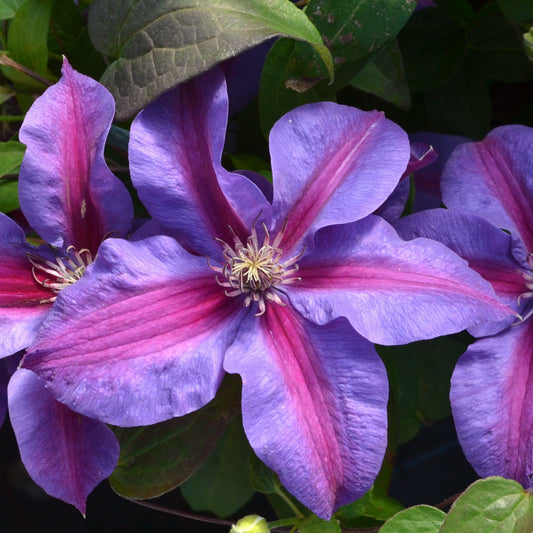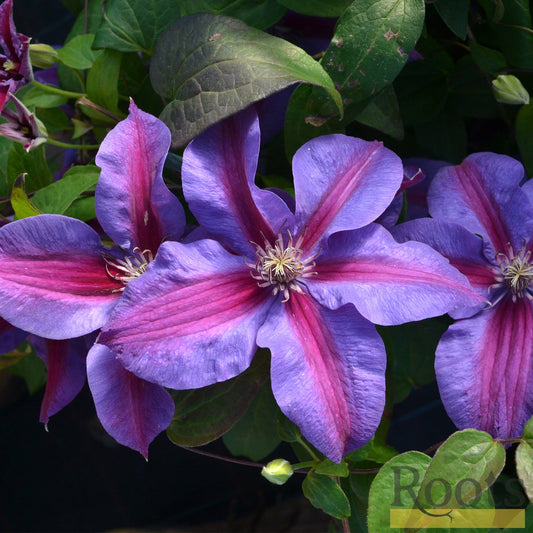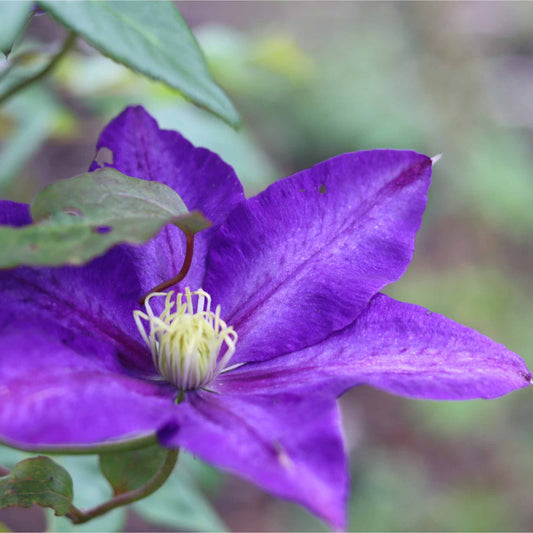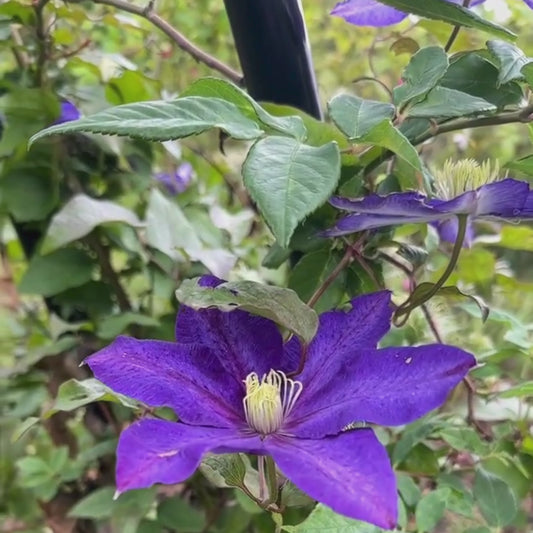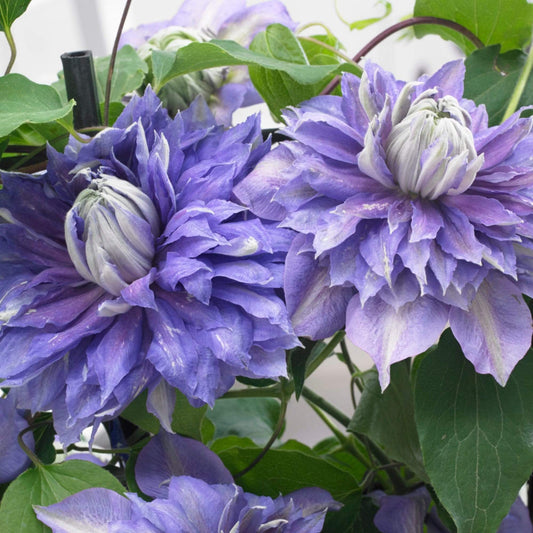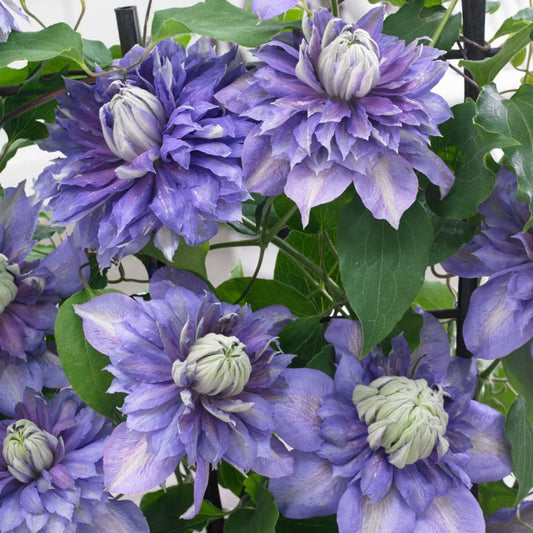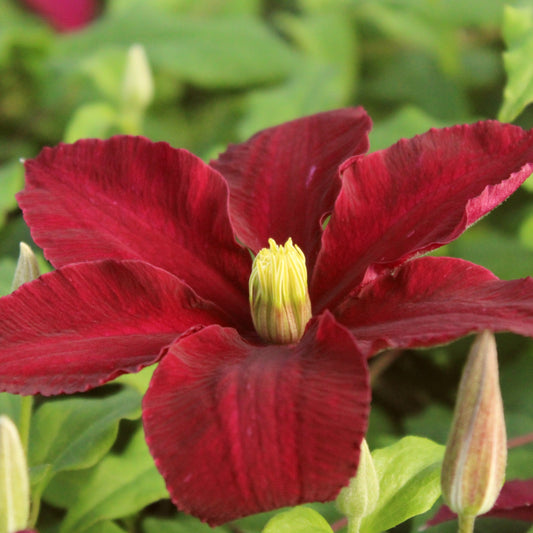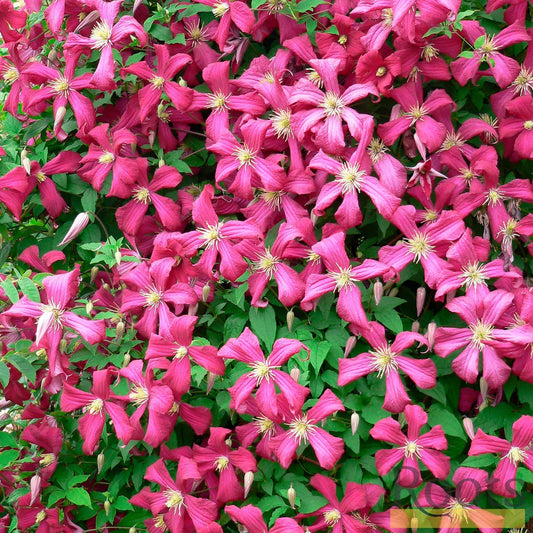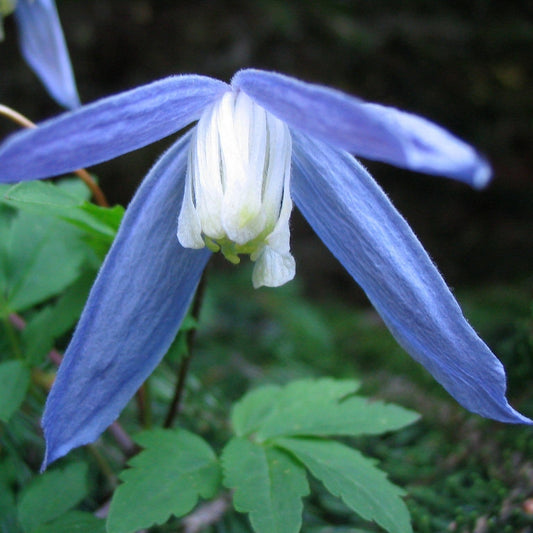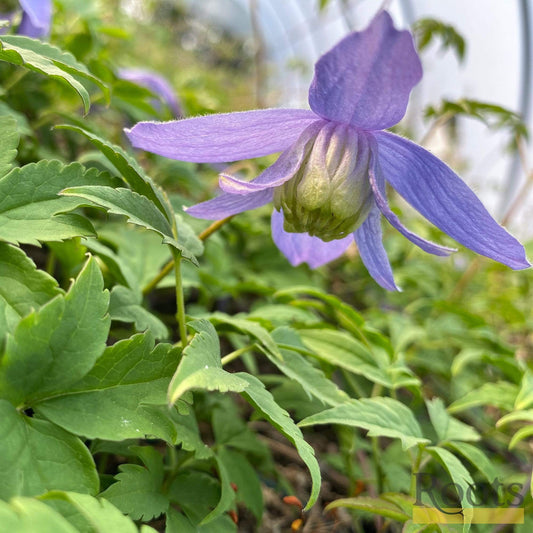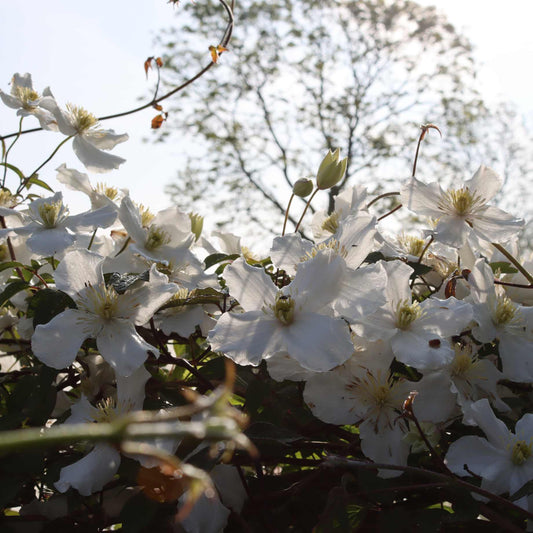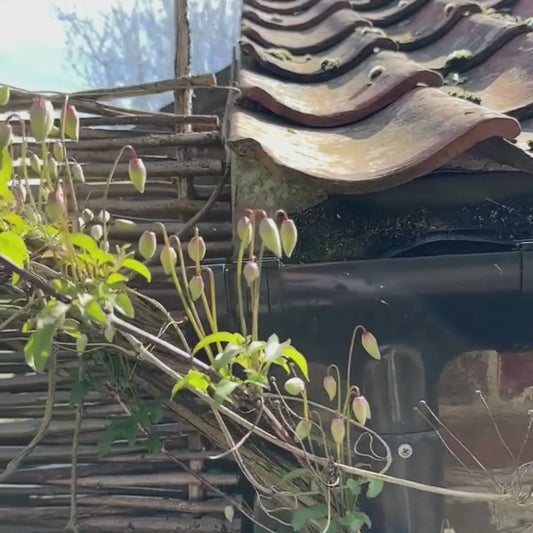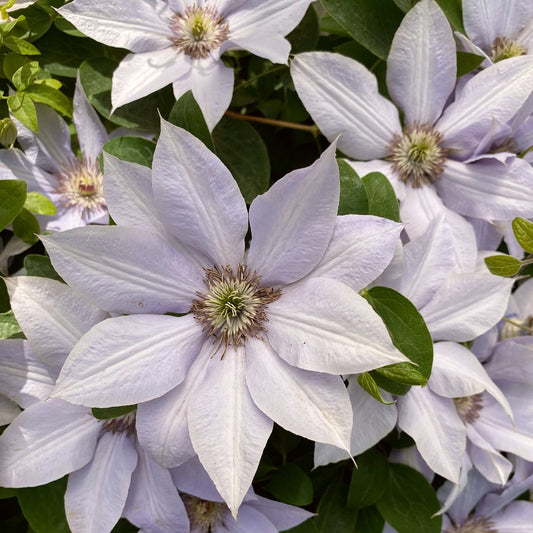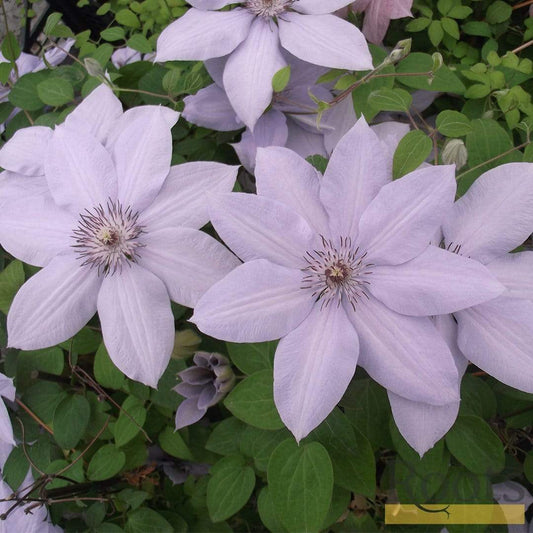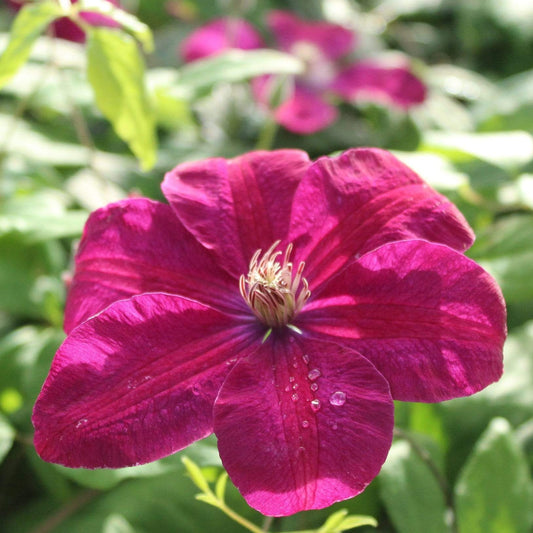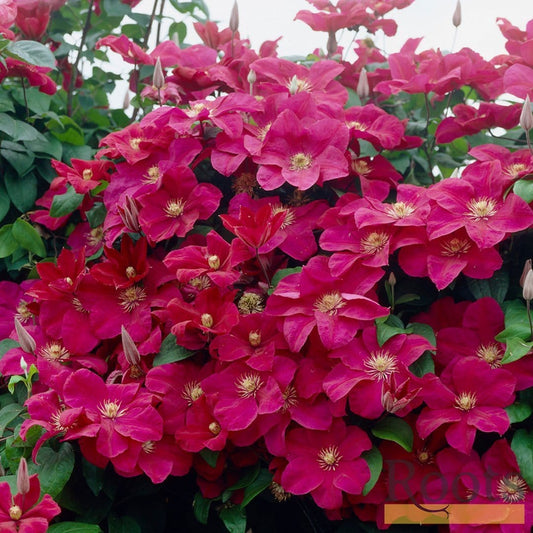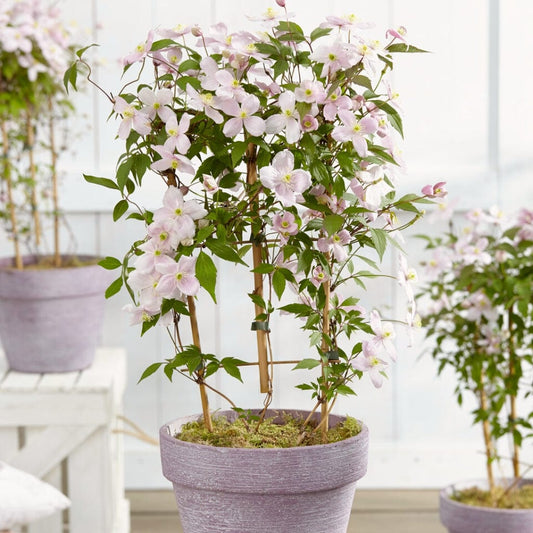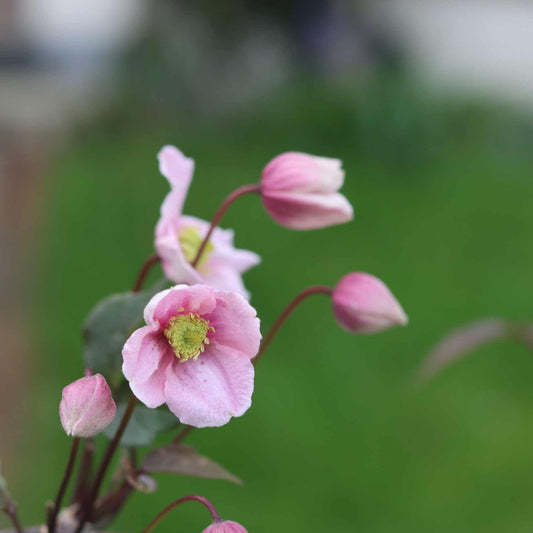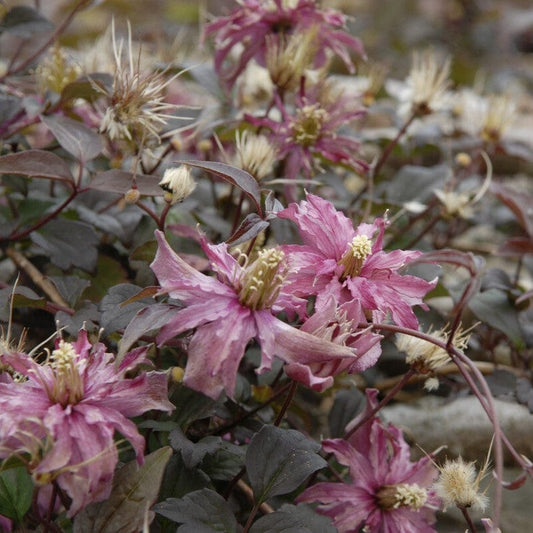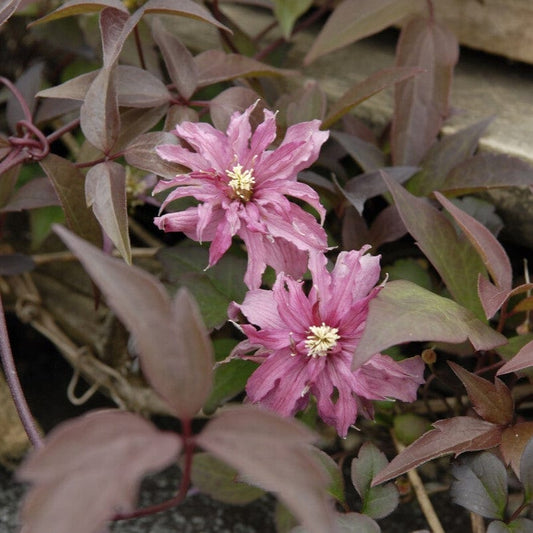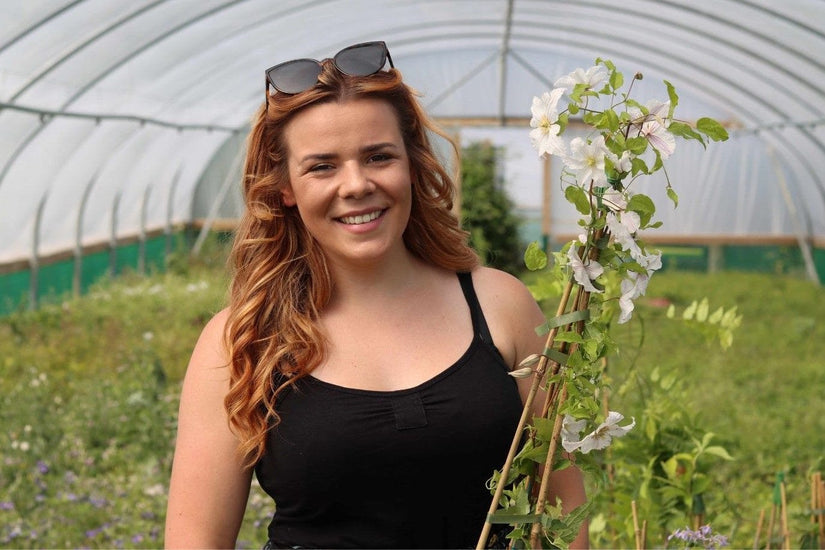Collection: Clematis Plants
By law*, you have to have a clematis in your garden. These colourful, flowering vines are one of the best loved climbing plants, and for good reason! There are so many variations of colour, flower size, shape, scent and flowering period that you may need help choosing. That’s where we come in…
*well it should be.
Need help picking?-
Regular price From £30Regular price Sale price From £30
Clematis 'Josephine (Evijohill)'
Fabulous feathery double blooms
- Stunning, fully double pink flowers
- Pruning group 2 - light pruning
- Full sun, fully hardy (H6)
- Flowers June to September
1 option available
-
Regular price From £30Regular price Sale price From £30
Clematis 'Rebecca'
One of the very best!
- Massive, single crimson flowers
- Pruning group 2 - light pruning
- Full sun to partial shade, fully hardy (H6)
- Flowers June to September
2 options available
-
Regular price From £30Regular price Sale price From £30
Clematis montana 'Mayleen'
A riot of blush pink
- Enchanting blush pink blossoms
- Pruning group 1 - no pruning
- Full sun to partial shade, hardy (H5)
- Flowers May to June
2 options available
-
Regular price From £34Regular price Sale price From £34
Evergreen Clematis | Clematis armandii 'Appleblossom'
Scented evergreen climber
- Attractive, fragrant, pinkish white flowers
- Pruning group 1 - no pruning
- Full sun to partial shade, hardy (H4)
- Flowers March to April
2 options available
-
Regular price From £30Regular price Sale price From £30
Clematis montana 'Elizabeth'
Plentiful satin pink blossoms
- Gorgeous, rounded, single pink flowers
- Pruning group 1 - no pruning
- Full sun to partial shade, hardy (H5)
- Flowers May to June
2 options available
-
Regular price From £30Regular price Sale price From £30
Clematis 'Ernest Markham'
A gardeners' favourite!
- Huge, velvety magenta blooms
- Pruning group 3 - loves a prune
- Full sun, fully hardy (H6)
- Flowers June to September
2 options available
-
Regular price From £30Regular price Sale price From £30
Clematis 'Nelly Moser'
Award-winning favourite
- Pink, candy-striped single blooms
- Pruning group 2 - light pruning
- Full sun to partial shade, fully hardy (H6)
- Flowers May to June, September
2 options available
-
Regular price From £30Regular price Sale price From £30
Clematis 'Warsaw Nike'
A regal display of royal purple
- Extra large, single, velvety purple flowers
- Pruning group 2 - light pruning
- Full sun to partial shade, fully hardy (H6)
- Flowers May to October
2 options available
-
Regular price From £30Regular price Sale price From £30
Clematis 'Early Sensation'
Pearl-white scented clusters
- Countless, white and lime green single blooms
- Pruning group 1 - no pruning
- Full sun to partial shade, half hardy (H3)
- Flowers May to June
2 options available
-
Regular price From £30Regular price Sale price From £30
Clematis 'Blue Angel'
RHS award-winning angel
- Huge, frilly, single lilac flowers
- Pruning group 3 - loves a prune
- Full sun to partial shade, fully hardy (H6)
- Flowers June to October
2 options available
-
Regular price From £30Regular price Sale price From £30
Clematis 'Piilu'
A candy-striped superstar
- Exquisite frilled, candy-stripe blooms
- Pruning group 2 - light pruning
- Full sun to partial shade, fully hardy (H6)
- Flowers June to September
2 options available
-
Regular price From £30Regular price Sale price From £30
Clematis viticella 'Étoile Violette'
Gorgeous violet stars
- Myriad violet blooms with yellow centres
- Pruning group 3 - loves a prune
- Full sun to partial shade, fully hardy (H6)
- Flowers July to September
2 options available
-
Regular price From £30Regular price Sale price From £30
Clematis 'Multi-Blue'
A host of stunning starry blooms
- Double (and semi-double) lapis lazuli flowers
- Pruning group 2 - light pruning
- Full sun to partial shade, fully hardy (H6)
- Flowers May to August
2 options available
-
Regular price From £30Regular price Sale price From £30
Clematis 'Dr Ruppel'
Huge, pink striped flowers
- Fuchsia pink flowers with a hot pink stripe
- Pruning group 2 - light pruning
- Full sun to partial shade, fully hardy (H6)
- Flowers May to June, September
2 options available
-
Regular price From £30Regular price Sale price From £30
Clematis 'Marie Boisselot'
Trailing snowdrop-white stunner
- Satin touch snowdrop-white flowers
- Pruning group 2 - light pruning
- Full sun to partial shade, fully hardy (H6)
- Flowers June to September
2 options available
-
Regular price From £30Regular price Sale price From £30
Clematis 'Guernsey Cream'
Showy white blooms
- Creamy white petals with a lime green stripe
- Pruning group 2 - light pruning
- Partial shade, hardy (H4)
- Flowers May to July
2 options available
-
Regular price From £30Regular price Sale price From £30
Clematis 'The President'
Delicate violet blooms
- Classic clematis with dainty violet flowers
- Pruning group 2 - light pruning
- Full sun to partial shade, fully hardy (H6)
- Flowers June to September
2 options available
-
Regular price From £30Regular price Sale price From £30
Clematis 'Mrs Norman Thompson'
Vibrant striped violet blooms
- Single flowers with a lush raspberry stripe
- Pruning group 2 - light pruning
- Full sun to partial shade, fully hardy (H6)
- Flowers May to June, September
2 options available
-
Regular price From £30Regular price Sale price From £30
Clematis viticella 'Polish Spirit'
Rich velvet purple flowers
- Single, deep purple flowers (9cm across)
- Pruning group 3 - loves a prune
- Full sun to partial shade, fully hardy (H6)
- Flowers July to September
2 options available
-
Regular price From £30Regular price Sale price From £30
Clematis 'Diamantina'
Amethyst purple pom-poms
- Fully double flowers up to 15cm across
- Pruning group 2 - light pruning
- Full sun to partial shade, fully hardy (H6)
- Flowers May to September
2 options available
-
Regular price From £30Regular price Sale price From £30
Clematis 'Niobe'
Ruby red climber that bees love
- Sumptuous, large, single flowers
- Pruning group 2 - light pruning
- Full sun to partial shade, fully hardy (H6)
- Flowers July to September
2 options available
-
Regular price From £30Regular price Sale price From £30
Clematis alpina 'Bredon Blue'
Clusters of indigo bells
- Masses of indigo blue bell-shaped flowers
- Pruning group 1 - no pruning
- Full sun to partial shade, hardy (H5-H6)
- Flowers March to April
2 options available
-
Regular price From £30Regular price Sale price From £30
Clematis montana 'Alba'
Fluffy clouds of lace white
- Cruciform, single white blooms
- Pruning group 1 - no pruning
- Full sun to partial shade, hardy (H5)
- Flowers May to June
2 options available
-
Regular price From £30Regular price Sale price From £30
Clematis 'Bernadine'
The most delicate purple shades
- Huge, silvery lilac, single flowers
- Pruning group 2 - light pruning
- Partial shade, fully hardy (H6)
- Flowers May to September
2 options available
-
Regular price From £30Regular price Sale price From £30
Clematis 'Rouge Cardinal'
Magenta and crimson showstopper
- Dramatic magenta and crimson blooms
- Pruning group 3 - loves a prune
- Full sun to partial shade, fully hardy (H6)
- Flowers June to September
2 options available
-
Regular price From £30Regular price Sale price From £30
Clematis montana 'Rubens'
Sweetly-scented prolific bloomer
- Dozens of vanilla-scented, pale pink flowers
- Pruning group 1 - no pruning
- Full sun to partial shade, hardy (H5-H6)
- Flowers May to June
2 options available
-
Regular price From £30Regular price Sale price From £30
Clematis montana 'Marjorie'
Early double pink delight
- Double creamy pink flowers with coral centres
- Pruning group 1 - no pruning
- Full sun to partial shade, hardy (H5)
- Flowers May to June
2 options available
Cheltenham
Meet Mollie
Climbers grown by specialists at the height of their game
What does it take to grow the strongest and best climbing plants in the show tent? Organic fertilisers, natural pest control and years of dedication from Mollie, our expert grower in Worcestershire. Professionally pruned and checked by hand, they’re guaranteed to put on a gold standard display in your garden, too.
Need help picking?

Which clematis?
Large flowered clematis varieties include Niobe (Crimson) and The President (Indigo) whereas Alpina Willy (Blush Pink) or Cyanea (Blue) will produce clusters of smaller flowers. Montana Mayleen (Lilac) and Elizabeth (Pink) are scented. You can also choose when you want your clematis to flower, from winter (Cirrhosa varieties) through early spring (Alpinas) to autumn (Viticellas). If you’re planting in a pot, you’ll want to choose a more compact clematis like Multi Blue, Hagley Hybrid or Piilu.

Planting schemes and partners
Clematis and climbing roses are made for each other - they thrive in the same conditions and flower together - a lovely way to add vertical interest to a cottage garden planting scheme. Combine bold contrasting colours like orange and purple or keep it subtle with pinks, whites and lilacs. Clematis are a great choice for smaller city gardens and can really brighten up a balcony or patio when planted in pots and grown up a trellis.

Growing tips
All clematis plants will thrive when supported or trained up a fence, wall, trellis or obelisk. Most prefer full sun, but some, such as Nelly Moser, can be grown in partial shade. Plant your clematis in fertile, moisture-retaining soil and dig in plenty of compost or manure. Feed your plants weekly with a high potash fertiliser in summer and water well, especially if you’re growing in pots. Clematis have three different pruning groups so it is important to check which one applies to yours. For more information about pruning groups, read our simple guide.
Clematis FAQs
Where is the best place to plant a clematis?
Most clematis will grow well in sun or partial shade but try to avoid heavily shaded areas as your clematis is less likely to flower.
What time of year should I plant a clematis?
Late spring or early autumn is the best time to plant your clematis as this is when the soil is moist and warm. Planting clematis in summer is also an option, but it will need additional watering to establish well.
How do I care for my clematis?
Make sure to water your clematis frequently while it’s getting established and finding its place in the world (or in this case, your garden!) Always keep the soil moist and ensure that your clematis getting enough sun as well as partial shade.
Should I prune my clematis?
Regular pruning encourages strong growth, flowering and also prevents your clematis getting in a mess! Do the right thing, prune your clematis.
How do I prepare my clematis for winter?
Pruning should be performed in late winter, approximately 30-45cm from the ground, ensuring that all dead growth is removed. We know it’s hard to say goodbye, but it’ll be worth it!
Do clematis come back every year?
With some good old TLC, your clematis will survive the winter and return with a bounty of blooms the following year.
What is the easiest clematis to grow in the UK?
Any clematis in the viticellas family will be the easiest clematis to grow, wilt-resistant and happy in most soils and in positions, although they prefer sun. Here are a few of our favourites:
- ‘Etoile Violette'
- ‘Madame Julia Correvon'
- And last but certainly not least, ‘Polish Spirit'.
The best soil type for a clematis?
Clematis will grow well in any soil type providing it is moist and well drained. If your soil is heavy or clay-based, mix in some fine gravel or perlite when planting, to help with drainage.
Does clematis die in winter?
The majority of Clematis will die down during the winter. The leaves will fall off and you’ll likely be left with just the stems but don’t worry, there is a happy ending here! New growth will appear in the spring and you’ll be reunited once more.
What should I plant with clematis?
Great news! You can plant just about anything with a Clematis as they like their roots shaded by other plants. Annuals or perennials are a wonderful choice.
Happy plants make happy customers
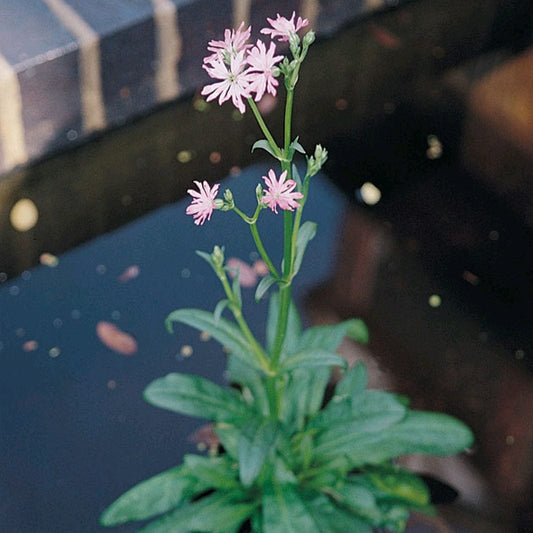
Plants arrived in great condition and very promptly. Well established - much better than the ones I got at my local garden centre.
Monica Spence
| 24 May
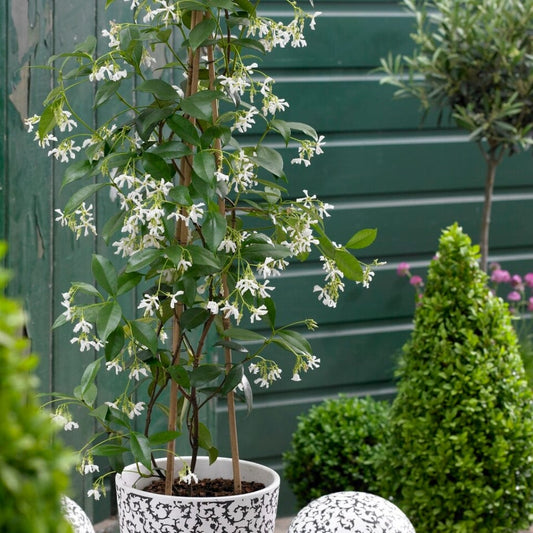
Yet again this company delivered good healthy plants, exactly as shown in photos, well packaged and within delivery time quoted. Recommend!
Jacqueline Burgess
| 2 Jun
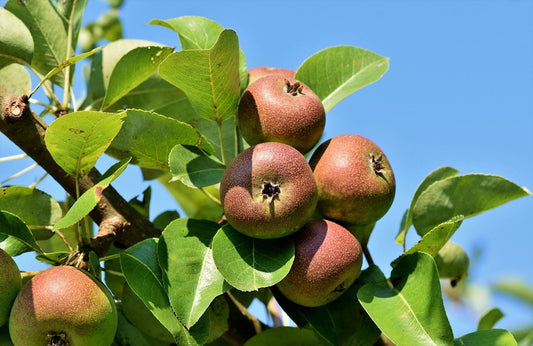
I continue to be so impressed with Roots. Their customer care, knowledge of their subject: from planting hedges to pruning roses and more, has been a great support.
Judy Lane
| 23 Oct
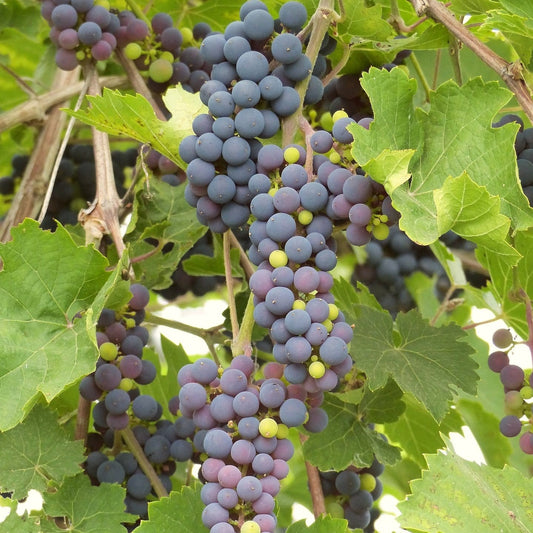
The plant arrived looking vigorously healthy, which brings a smile to your face, extremely well protected in its packaging.
Martyn Hill
| 5 Jul
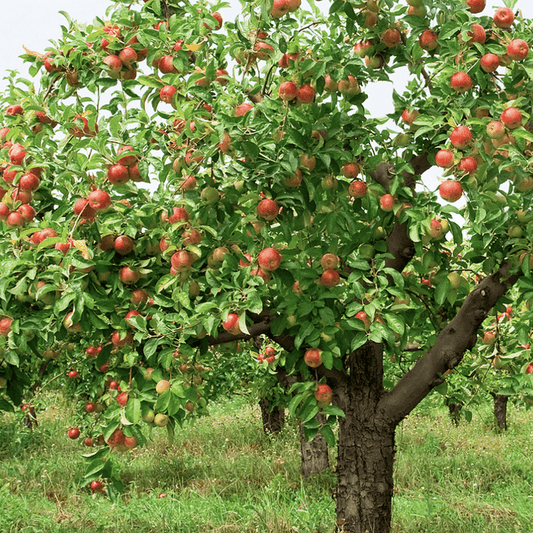
As a non-gardener, I found my whole experience brilliant. Great information & advice available on the website, great range of products & prices are brilliant.
John-Paul
| 22 May

Wonderful plants and great customer service... really surprised to find that the plants are better than those you would get at your local garden centre.
Gavin Wilcock
| 8 Nov
Fighting plastic waste
Delivering fresh from the nursery
Supporting UK growers
